If you’ve been convicted of a DUI in Pennsylvania in your past, and you’re now facing a second DUI charge, you’re probably wondering about the potential legal consequences.
Often, the first questions clients tend to ask is whether they’re going to lose their driver’s license, Jail for 2nd DUI in PA, or pay expensive, hefty fines. Like any legal question, the answer is that it depends on a number of factors.
This article outlines the key differences between a first DUI, a second DUI, and what you can do to reduce the potential impact that a second DUI in PA can have.
Penalties for a First DUI vs. Second DUI in Pennsylvania
A DUI charge is a serious offense, regardless of whether it’s your first offense or second offense. While the penalties do escalate for subsequent DUIs, one of the most significant factors in determining the penalty for a DUI in Pennsylvania is your impairment level, which is based on your blood alcohol concentration (BAC).
There are three levels of impairment:
- General impairment: BAC level of .08% to .099%
- High impairment: BAC level of .10% to .159%
- Highest impairment: BAC level of .16% or higher
The higher the impairment level at the time of your DUI, the more severe the penalty is. For example, for a second DUI, a BAC of .08% is classified as general impairment, and fines range from $300 to $2,500. However, a BAC of .16% or above is considered highest impairment, and the fine will be a minimum of $1,500, and it can be significantly higher than that.
First DUI in Pennsylvania
Being convicted of DUI in Pennsylvania for the first time can result in the following penalties:
- Probation
- 48 hours to 6 months in jail
- Fines ranging from $300 to $5,000
- License suspension
- Mandated Alcohol Highway Safety School
- Orders to attend substance abuse treatment programs
A first-time offense is a misdemeanor, though there are varying degrees depending on the circumstances. If you are convicted of DUI and there was a minor in the vehicle at the time, for example, the charge could be a first-degree misdemeanor, which is considered more serious.
Second DUI in Pennsylvania
First, it’s important to understand what constitutes an offense for a second DUI in PA. For example, you could have gotten a DUI in 2012 and then a second DUI in 2024. Legally, a DUI is only a second DUI if it occurs within 10 years of a first DUI.
That being said, legal and financial penalties of a second DUI are more serious, and may include the following:
- 5 days to 5 years in jail
- Fines ranging from $300 to $10,000
- License suspension up to 18 months
- Mandated Alcohol Highway Safety School
- Orders to attend substance abuse treatment programs
- Mandatory installation of an ignition interlock device (IID)
Frequently Asked PA DUI Questions
Are there any defenses to a second PA DUI charge?
Depending on the circumstances, several defenses could be available to you that could help you beat this charge. Your attorney may review each possible defense with you, including:
- An illegal stop
- The accuracy of the field sobriety test
- Faulty Breathalyzer results
- Improperly administered blood tests
- The possibility of rising BAC levels
- A violation of constitutional rights
- A lack of probable cause for the arrest
There’s no question about it: the law can be incredibly complex to navigate; hiring an experienced DUI attorney can help you mount stronger defenses.
Is there mandatory jail time after getting a second DUI in PA?
A second DUI conviction includes mandatory jail time as a legal consequence. However, a judge may be able to exercise a certain degree of discretion in this area and order probation instead of jail time. Further, if your attorney is ultimately able to beat charges, you won’t face a conviction or jail time.
Can I be convicted of DUI even if I wasn’t drinking alcohol?
Yes, it is possible to be convicted of driving under the influence (DUI) even if you did not drink a sip of alcohol. DUI laws include any form of substance impairment, including controlled substances like illegal drugs, prescription medication, and over-the-counter drugs. The reality is anything that impairs your ability to drive safely can land you in legal hot water.
In the absence of being able to measure blood alcohol concentration, a police officer can rely on their training and experience to determine that you’re impaired by conducting a field sobriety test. A blood test could also be administered to detect the presence of any drugs in your system.
Contact an Experienced Pennsylvania DUI Attorney
When facing DUI charges, especially a more serious second offense charge, avoid leaving your future up to chance. Consult with a qualified attorney to advocate for your constitutional rights and who will fight aggressively on your behalf. Attorney James H. Bonner, Esquire, P.C., works hard to achieve successful outcomes for clients. Call the office at 610-450-4555 to schedule a consult


